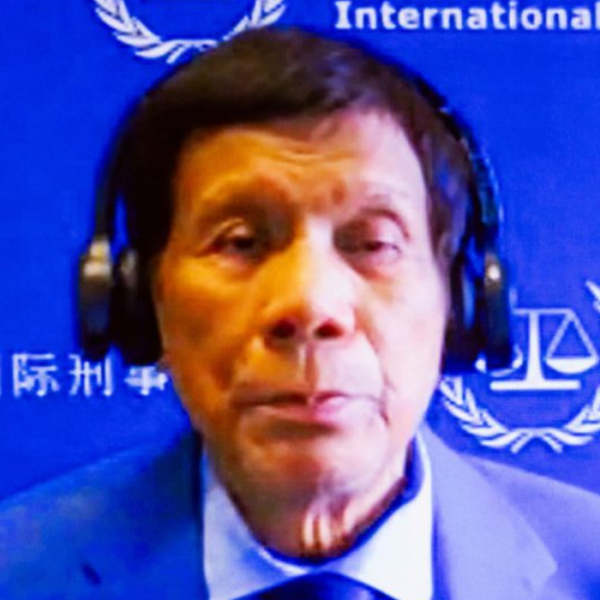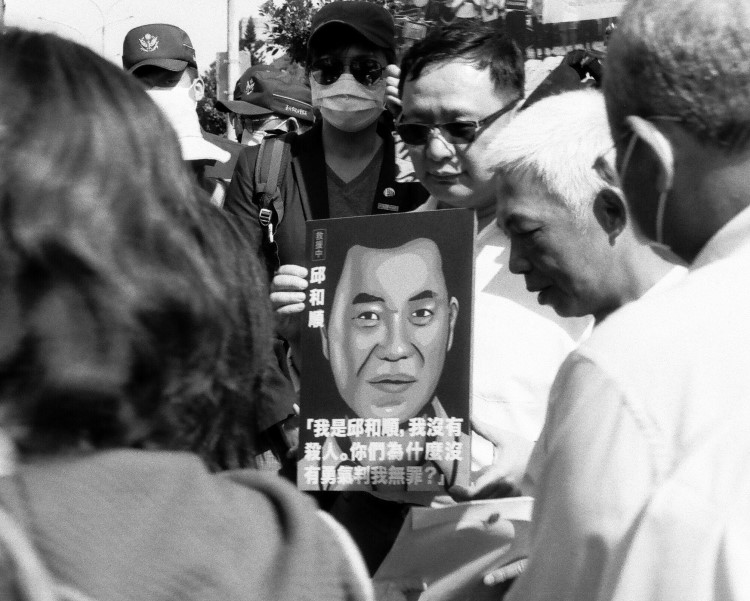停止雙標,新政府上任應立即落實人權保障
隨著新任台灣總統賴清德、副總統蕭美琴於5月20日宣誓就職與內閣上任,履行人權承諾及國際人權義務必須是新政府的優先事項。國際特赦組織台灣分會秘書長邱伊翎提醒:「台灣政府應即刻平等落實國際人權公約之保障,停止差別對待,尤其要關注經常被忽略的交織性的多重歧視及壓迫。」
通過符合國際人權標準的《難民法》,並確保相關法規調適
因為缺少《難民法》明確提供法規制度保障,政府仍可能因為並未審視驅逐出國案件,將當事人遣送至可能遭受迫害的國家或地區,違反「不遣返原則」的國際義務。
至今來台的尋求庇護者國籍已多達24國,這些人可能因為其非法入境或逾期停留之事實,而被拒絕在法律扶助之外。
邱伊翎秘書長表示:「台灣政府在2022年的『國家人權行動計畫』曾承諾於2024年將《難民法》提交至立法院審議並於年底前通過法案。新政府必須加快難民庇護制度的建立。」
此外,台灣政府也須儘速將《禁止酷刑公約》和《禁止強迫失蹤公約》國內法化,並在去除《刑法》中對尋求庇護者非法入境之刑責及提供確保其基本權利的法律扶助。
而針對正在發生的戰爭衝突,台灣政府應確保企業履行符合國際標準的人權盡職調查,避免武器、資金、燃料及相關零件輸出至交戰國。
確保外籍家事勞工、看護工以及遠洋漁工免於剝削
在台灣,超過七十萬人的非本國籍勞動力主要來自越南、菲律賓、印尼、泰國等國,然而,現行法規仍將遠洋漁工及家庭看護工排除於基本的勞動權利保障之外,不符合國際勞動標準。
在家庭或漁船執法機關難以監督或執行勞動檢查的場域,移工更可能受到不當對待或剝削。根據移民署統計,約有七至八萬的移工,因為惡劣的勞動環境而被迫逃離原雇主,成為「失聯移工」,使其成為不被現行法規所保障的脆弱群體。
邱伊翎秘書長強調:「政府必須重視此系統性之人權問題,立法要求企業進行人權盡職調查,並確保申訴及救濟機制。另外,政府也必須儘速將國際勞工組織漁業工作公約(ILO C188) 國內法化,保障遠洋漁工的有效通訊權及其他基本人權。」
政府必須確保提升移工勞動條件,透過修法將移工納入保障;同時,允許移工自由轉換雇主,並強化仲介管理,確保移工免於因債務束縛而遭強迫勞動。
保障和平示威,修正《集會遊行法》
台灣的《集會遊行法》不符合國際人權標準。台灣法規對人民之集會遊行權仍舊有不符比例原則的限制,像是《集會遊行法》中對陳抗區域的限制、警察解散權,以及要求集會者事先取得許可等——這些都應該受到修正與廢止。同時,台灣的法規也需要符合國際間對於警察使用「非致命性」與「低致命性」武器的規範以及國際標準。
政府在和平示威中的角色應該是扮演協助者的角色,而非是不合理地限制人民的集會遊行權。政府必須落實2013年與2017年兩公約國際審查中國際專家的意見,修訂違反《公民與政治權利公約》的《集會遊行法》第29條。
《反歧視法》須建立有效救濟機制
行政院於5月公布《反歧視法》草案,國際特赦組織歡迎政府正式回應了自2017年,來自民間與兩公約國際獨立專家小組自針對「建立綜合性的反歧視法」的訴求,包含4月甫結束的《消除一切形式種族歧視公約》的國際審查結論性意見。
針對歧視事件,政府需要確保立法能保障處境不利群體、回應歧視案件的救濟需求,更需要建立具獨立性的主責平權機關(Equality Body),確保法案落地後的可及與有效性。
在同婚合法及跨國同婚合法之後,最後一群被排除的台灣中國同性配偶也應獲得平等權;針對跨性別者變更性別登記,也應儘速廢除強制摘除性器官之要件。
死刑並非正義,應作為優先儘速廢除
目前台灣憲法法庭正在審理台灣死刑合憲性的案件。國際特赦組織台灣分會和世界反死刑聯盟(World Coalition Against the Death Penalty)也已遞交法庭之友意見書,支持全面廢除死刑。目前死刑案件中仍有諸多程序上有瑕疵之爭議個案,足以顯示死刑並非實現正義的手段,全世界已有超過四分之三國家廢除死刑,台灣亦應儘早廢止。
納入多元利害關係人落實氣候正義
政府在推動淨零排放及能源轉型過程中,應該更細緻地納入多元的利害關係人,在政策過程中進行更多有效的公民參與,避免在轉型過程,造成弱勢族群處於更加劣勢的地位。
邱伊翎秘書長指出:「政府應將 2030 年減排目標提高至政府間氣候變遷專門委員會議(IPCC )建議的43%,並確保公正的能源轉型與再生能源、電動車產業價值鏈牽涉的國內外的利害相關人權利都能受到保障與尊重。
Taiwan: New Administration Must Immediately Implement Rights Protection Without Double-Standards
With Taiwan's new President Lai Ching-Te and Vice President Hsiao Bi-Khim sworn in, and cabinet inaugurated on May 20, fulfilling human rights commitments and international human rights obligations must be a priority for the new administration.
Amnesty International Taiwan's National Director E-ling Chiu said, "The new administration should immediately implement human rights protection under the international human rights law on an equal footing and stop discriminatory treatment. The intersectional discrimination and oppression that are often overlooked must be given particular attention."
Adopt the ‘Refugee Act’ and ensure that it, and other local legislation, are in line with international human rights standards In the absence of explicit legal safeguards under the Refugee Act, the Government may still violate its international obligations under the non-refoulement principle, repatriating individuals, without thorough examining, to countries or regions where they may be persecuted,
So far, asylum seekers of as many as 24 nationalities have come to Taiwan, and these people may be denied legal assistance due to the fact that they entered the country illegally or overstayed.
E-ling Chiu said, "In its 2022 National Human Rights Action Plan, the Taiwan government pledged to submit the Refugee Law to the Legislative Yuan for consideration in 2024 and pass the bill by the end of the year. The new administration must soon establish a comprehensive asylum system."
In addition, the Government must urgently domesticate the Convention against Torture (CAT) and the Convention for the Protection of All Persons from Enforced Disappearance (CPPED), remove criminal liability for illegal entry of asylum seekers from Taiwan’s Criminal Code, and provide them with legal assistance to ensure their fundamental rights.
Taiwan’s government should ensure that companies perform human rights due diligence, in line with international standards, to avoid the export of weapons, capital, fuel, and elements to any party involved in armed conflicts.
Ensure that migrant domestic workers, caregivers and distant-water fishers are protected from exploitation
In Taiwan, more than 700,000 migrant workers originate from Vietnam, the Philippines, Indonesia, and Thailand, yet existing labour laws still exclude migrant distant-water fishers and migrant domestic caregivers from basic rights protections, which are not in line with international labour standards.
Migrant workers are more likely to be ill-treated or exploited in areas where it is difficult for law enforcement agencies to monitor or enforce labour inspections, such as at home or on fishing vessels.
According to the statistics of Taiwan’s National Immigration Agency, about 70,000 to 80,000 migrant workers have been forced to flee their original employers due to poor working conditions, becoming ‘missing migrant workers,’ making them a vulnerable group that is not protected by law.
"The Government must take this systemic issue seriously, amend laws to require companies to conduct human rights due diligence, and ensure grievance and redress mechanisms. In addition, the Government must urgently codify the International Labour Organization Convention on Work in Fishing (ILO C188) to protect the right to effective communication and other fundamental human rights of distant-water fishermen," said E-ling Chiu.
The Government must ensure that the working conditions of migrant workers are improved by amending the law to include migrant workers in the protection scheme.
At the same time, migrant workers should be allowed to change employers freely and the management of intermediaries should be strengthened, so as to ensure that migrant workers will not be subjected to forced labour as a result of debt bondage.
Protect the Protest: Amend the ‘Assembly and Parade Act’
Taiwan's Assembly and Parade Act falls short of international human rights standards, as the law still imposes disproportionate restrictions on people's right to peaceful assembly, such as the definition of 6protest zones, the police’s power to disband protests, and the requirement to obtain prior permission for gatherings. These restrictions limit fundamental freedoms and hamper the positive development of civil society.
In addition, the laws need to be in line with international law and standards on the use of "non-lethal" and "less-lethal" weapons by the police. The Government's role in peaceful demonstrations should be to act as a facilitator, not to unreasonably restrict people's right to assembly and procession.
The Government must implement the recommendations of international experts from the 2013 and 2017 international reviews of the two Covenants and amend Article 29 of the Assembly and Parade Act, which is in violation of the principles enshrined in the International Covenant on Civil and Political Rights (ICCPR).
‘Anti-discrimination Act’ must establish an effective mechanism for remedy and accountability
Taiwan's Executive Yuan announced the draft Anti-Discrimination Act this year in May. Amnesty International welcomes the Government's adaptation of the concluding observations of the international review of the Convention on the Elimination of All Forms of Racial Discrimination (CERD), which concluded in April 2024.
The calls have been underway since 2017 by the civil society and the international review committee of the Two Covenants, urging the Government to establish comprehensive anti-discrimination legislation. To address discrimination, the Government needs to ensure that the legislation can protect the disadvantaged groups and respond to the need for remedy and accountability in discrimination cases.
The establishment of an independent Equality Body is needed to ensure. the accessibility and effectiveness of the legislation after its implementation.
After the legalisation of same-sex marriage and transnational same-sex marriage, the last gap to fill is to allow Taiwanese-Chinese same-sex couples to get married. The compulsory reproductive surgery must be abolished now for transgender people to legally change gender.
Death penalty is unjust and should be abolished as priority
The Constitutional Court of Taiwan is currently reviewing a case on the constitutionality of the death penalty in Taiwan. Amnesty International Taiwan and the World Coalition Against the Death Penalty have also submitted amicus curiae briefs in support of the total abolition of the death penalty.
The number of controversial procedural flaws in death penalty cases demonstrates that the death penalty is not a means of achieving justice, and that more than three-quarters of the world's countries have already abolished the death penalty, and Taiwan should do so as soon as possible.
Inclusion of multi-stakeholders to realise climate justice
In promoting net zero emission and energy transition, the Government should broadly incorporate a diversity of stakeholders, and conduct more effective people’s participation in policy-making, so as to
avoid placing the marginalised groups in an even more disadvantaged position in the transition period.
“The government should raise the 2030 emission reduction target to 43% as recommended by the Intergovernmental Panel on Climate Change (IPCC), and ensure that the rights of domestic and foreign stakeholders involved in the value chain of the renewable energy and electric vehicle industries are safeguarded and respected in a just energy transition," said E-ling Chiu.



